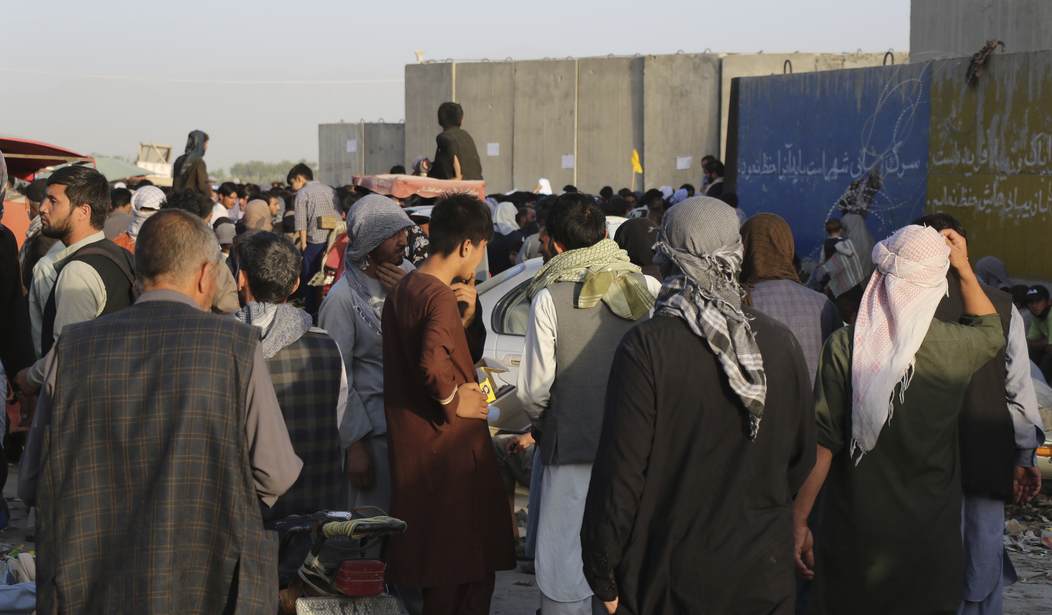While tragic, this was probably entirely predictable. After Joe Biden’s disastrous withdrawal from Afghanistan, the Kinder, Gentler Taliban immediately began cracking down on the rights and freedom of women, just as they have always done. Women and girls were banned from schools and universities with few exceptions and most were not allowed to work. This threw the career plans of many young women who had grown up under the rule of the American-backed government into a tailspin. And now, according to a report in the Afghanistan Times, an alarming number of them are giving up hope and taking their own lives. And we’re not talking about a small statistical anomaly here. (American Wire)
Suicides by women in Afghanistan are skyrocketing according to a new report that has come out a year after President Biden catastrophically pulled US forces from the country handing it over to the Taliban.
The despair of Afghanistan women suffering under the deadly oppression of the Taliban is palpable to all women and it should bring great shame to the Biden administration.
One young woman was kept from becoming a doctor and then was forced into a marriage with her cousin who was a heroin addict. She felt she had nothing left to live for and proceeded to take her own life in a country where more women than men commit suicide.
The story of the unnamed woman in the excerpt above is beyond tragic. She had been on track to go to medical school and become a doctor when the Allied forces pulled out and the Taliban retook power. In short order, she was informed that she would not be allowed to go to school and was entered into a forced marriage with her own cousin, a drug addict. Rather than face that sort of future, she ended her life.
Taliban's restrictive measures in Afghanistan have led to a distressing surge in female suicides. In a harrowing turn of events, an alarming number of Afghan women, facing limited freedoms in education, work, and movement, are committing suicide, as revealed by a investigation by… pic.twitter.com/hhvrfdZDzd
— Afghanistan Times (@AfghanistanTime) August 28, 2023
She was far from alone. Globally, men are twice as likely to die by suicide as women. But in Afghanistan, women now account for more than 75% of the suicides. That’s not an exact figure because suicide is seen as a mark of great shame in Muslim culture and families go to great lengths to hide it. So the figures could be even higher.
One U.N. spokesperson described this situation as a “mental health crisis precipitated by a women’s rights crisis.” If I was hearing something like that from a social activist in the United States these days I would probably write it off as hyperbole. But in Afghanistan, it clearly seems to be the reality they are dealing with.
At least for the time being, there doesn’t seem to be much that can be done about this from the outside. Sending more aid to Afghanistan won’t help because the Taliban confiscate most of the aid that comes in and they don’t use it to help women anyway. But this tragic chapter in the story may at least prove instructional for the future. Who is to blame for all of this?
Well, the Taliban is obviously to blame, first and foremost. But a lot of this could have been avoided if America’s withdrawal from the country hadn’t been botched so badly. Many of these women like the aspiring doctor mentioned above would have been prime candidates for evacuation and a new start in a more Westernized country. But they never had the chance because of the chaotic way that we withdrew and handed the country over to the Taliban.
So what could we have done differently? For one thing, even before the decision to pull out was announced, we should have been collecting lists of all of our helpers and other aspiring expatriates who would need to be evacuated. Second, we never should have abandoned Bagram air base before we were ready to leave the country entirely. We should have been fortifying it even further while slowly and quietly moving all of the evacuees there and out of the country before we started pulling out any troops. When they were all gone, our troops could have flown out from a much more secure location than the center of chaos and hostility in Kabul.
Yes, that would have taken considerably longer. Perhaps as much of a year. But we would have accomplished the mission as much as possible and we wouldn’t be dealing with the mess we’re seeing today. Hindsight is 20-20, of course, but this may at least be an awful lesson that we can pass on to future generations in the hope that it won’t happen again.








Join the conversation as a VIP Member